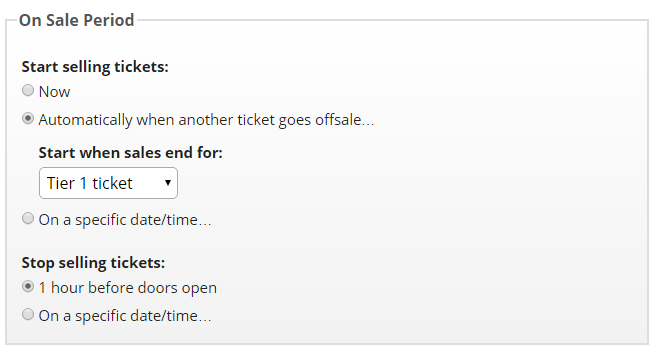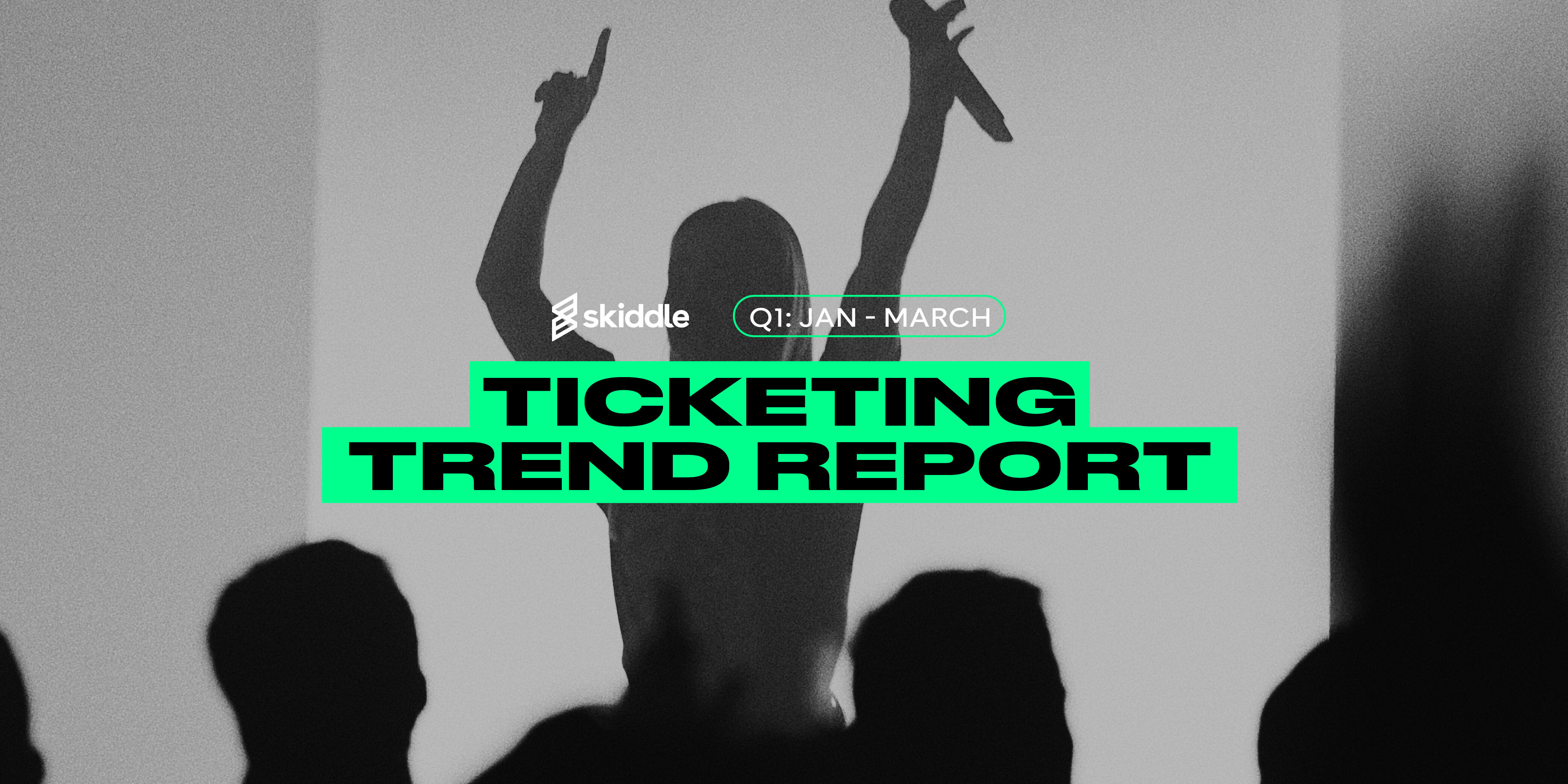- Skiddle News
Introducing automated ticket pricing tiers
-
By Ben Sebborn
- 09 Dec 2014
- 5 min read

Most promoters now are utilising tiered ticket pricing/dynamic pricing to maximise their income from sales. An example of this might be offering earlybird tickets at £15 when the event is first announced, then pushing ticket prices up by say £5 every month until you hit close to the event date, when you are selling tickets at a higher price. This rewards loyal customers who buy earlier (and encourages early sales) but also maximises profit from late buyers.
Until now, managing the ticketing process for this required you to be on the ball, ensuring that the next tier of tickets is placed online once the lower tier sells out.
Skiddle have just released automated ticket tiers, which will manage this process for you.
Simply add your tickets (one for each price tier), and in the ‘On sale’ options, you can specify a ticket which will trigger it’s release. For example, if you set ‘Tier 1’ as the trigger to release ‘Tier 2’ tickets, as soon as Tier 1 sells out, Tier 2 will go on sale automatically.
How do I set this up?
Here’s a quick guide, but feel free to call an account manager for a walk through.
- Add your first ticket. This should be the lowest price ticket (often called an ‘Earlybird’, ‘ Tier 1’ or ‘Release 1’). Set this to go on sale immediately, and go offsale either just before your event, or at a time you specify. Set an allocation of how many of these tickets you’d like to sell (eg 100)
- Add your next ticket, at a slightly higher price. We recommend increasing your price by £2.50 – £5 for lower priced tickets, or £5-£7.50 for higher priced tickets. When adding these, again set the allocation but set the ‘Start selling tickets’ option to “Automatically when another ticket goes offsale” and select the ticket you added in option 1 (this is called your ‘trigger ticket’ as it triggers the release of the next tier).
- If you want to add more tickets, continue the process, each time increasing the price slightly, and selecting the previous ticket you added under the “Start selling tickets” options.
- You’ll then see on your tickets overview page, the first ticket will be onsale immediately. The other tickets will be marked as “Pending Onsale”. These will automatically change to “Onsale” when the conditions are met (see below)
What are the advantages of tiered ticket pricing?
Tiered ticketing/dynamic pricing allows you to benefit from supply and demand pricing. You want to encourage early purchases, but at this stage demand is low. Therefore you can offer a reduced price to encourage sales. Once demand picks up, customers will pay a slightly higher price. Another advantage, is if your sales are slow, you don’t need to push the ticket price up, so you’re always in tune with customer demand. We therefore recommend that if you’re unsure of what price to charge, you start off low and set several tiers.
What triggers the ticket to be released?
Tickets will be releases as soon as the trigger ticket either reaches allocation, or the off sale date
Will customers always be able to buy a ticket?
Yes, we’ve designed the release system to release their next tier of tickets as soon as your remaining allocation reaches a critical level (available tickets is below the ‘max per transaction’ limit). This way customers will always be able to buy tickets, with no ‘dead time’ between
Can I still set certain tiers to close at a particular date/time?
Yes, the automatic system will monitor both ticket allocations and the status of the ticket. So if you want to close your earlybird tickets after 1 month, or 100 sales, the next tier will release as soon as one of those conditions is met.
How do I get started?















